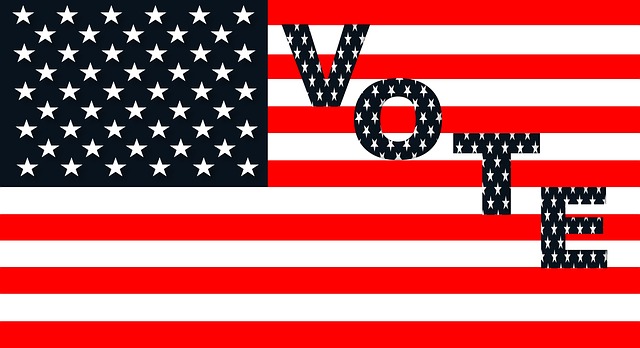Widgetized Section
Go to Admin » Appearance » Widgets » and move Gabfire Widget: Social into that MastheadOverlay zone
Kentucky Symposium Examines Past, Present and Future of Voting Rights
The views expressed are those of the author and do not necessarily reflect the views of ASPA as an
organization.
By Nate Kratzner
March 11, 2016
In the 2013 case, Shelby Co. v. Holder, the Supreme Court held that states with historical records of restricting voter rights no longer needed to seek prior approval from the court before implementing changes to their voting policies. Justice Ruth Bader Ginsburg penned a memorable dissent, accusing the court of hubris and employing the logic of, “throwing away your umbrella in a rainstorm because you are not getting wet.”
On the very day of the Shelby decision, Texas announced it was moving forward with previously blocked voting restrictions. One month later, North Carolina passed the most restrictive voting bill in recent memory. Alabama and Mississippi also moved to implement voting restrictions that had passed before the Supreme Court’s ruling but had not received federal approval. The rainstorm had started.
Last year marked the 50th anniversary of the original passage of the Voting Rights Act. Fifty years ago, Alabama protestors marched from Selma to Montgomery to protest lack of access to the ballot box. After being turned back violently on March 7 and forced to turn around to avoid continued violence on March 9, the marchers were finally able to leave Selma on March 21. Eight days later, the Voting Rights Act became law.
For a while, the rapid and steady increases in turnout among African-Americans made this look like the end of the national controversy over voting rights. However, voting rights have returned to the agenda. Since 2010, 27 restrictive voting measures have been passed by 19 states, 10 of which would have required preclearance before Shelby.

To mark the 50th anniversary, the University of Kentucky Martin School of Public Policy and Administration hosted a symposium on “The Foundation of Democracy: Voting Rights Past, Present and Future.” Held Oct. 13, 2015, the symposium explored the legacy of laws that sought to secure voting rights and contemporary controversies over voting rights. Pulitzer Prize-winner Jon Meachem, who gave the inaugural Wendell H. Ford Public Policy lecture, headlined the event.
The symposium was a fitting beginning to a lecture series in honor of Ford, a former Kentucky governor and United States senator. Ford successful advocacy for improved ballot access culminated in the passage of the National Voter Registration Act of 1993—more commonly known as the “Motor Voter Act.” The act requires state governments to offer voter registration through the Department of Motor Vehicles and public assistance offices.
Dorothy Gillam was a reporter for The Washington Post during the struggle to pass the Voting Rights Act and opened the first session on the history of voting rights by telling readers, “the struggle to enfranchise Black Americans is not theoretical for me.” She recounted stories from the civil rights movement and her involvement as a journalist. Gillam concluded saying, “I’ve lived the history…I want to say to the young people who are here that the struggle continues.”
While Gillam focused on the history leading up to the passage of the Voting Rights Act, author Ari Berman took up history since then. Between 1965 and 2013, the prior approval requirement of the Voting Rights Act had blocked 3,000 voting restrictions and deterred countless others from being proposed. More recently, a study by the Brennan Center for Justice estimated that in 2012, new restrictions on voting impacted 5 million people.
An entire afternoon session was devoted to the current legal battle in North Carolina. After the Shelby decision, North Carolina moved to pass severe restrictions on voting rights including restricting early voting, eliminating same-day registration and requiring certain forms of identification. As University of Kentucky law professor Josh Douglas noted, in-person voter fraud is rare as it is an inefficient strategy for “throwing” an election. A far better strategy would be to manipulate absentee ballots (which were not harder to access in the North Carolina law) or to pay off poll workers.
Voting rights attorney Daniel Donovan stated that in North Carolina blacks are far more likely to vote early and in-person, while whites are more likely to use absentee ballots. This disparity was also mirrored in the changes to the voter identification laws. Of the eight forms of identification that had been accepted before the new law, the four that are no longer accepted to vote are all disproportionately held by African-Americans, while the four that are retained are all disproportionately held by whites.
In the final session, Jon Meachem gave the inaugural Ford lecture and was joined on a panel by Dorothy Gillam and Kentucky Lieutenant Governor Crit Luallen for a wide-ranging discussion of the future of voting. Both Lt. Gov. Luallen and Gillam suggested that in addition to problems with access to the ballot, there is also a problem with apathy, with individuals feeling the democratic process is broken and their vote does not make a difference.
Lt. Gov. Luallen called for a return to recognizing that voting is a responsibility and Gillam brought up the role of social movements like Black Lives Matter in engaging citizens to solve problems through the Democratic process. Meachem talked about the fragmented and partisan media environment, as well as the general decrease in news consumption.
The symposium provided an excellent venue for the discussion of voting rights. The re-emergence of this issue and restrictions on the policy agenda requires a similarly renewed attention from policy scholars.
Author: Nate Kratzer is a doctoral student at the University of Kentucky’s Martin School of Public Policy and Administration.


Follow Us!